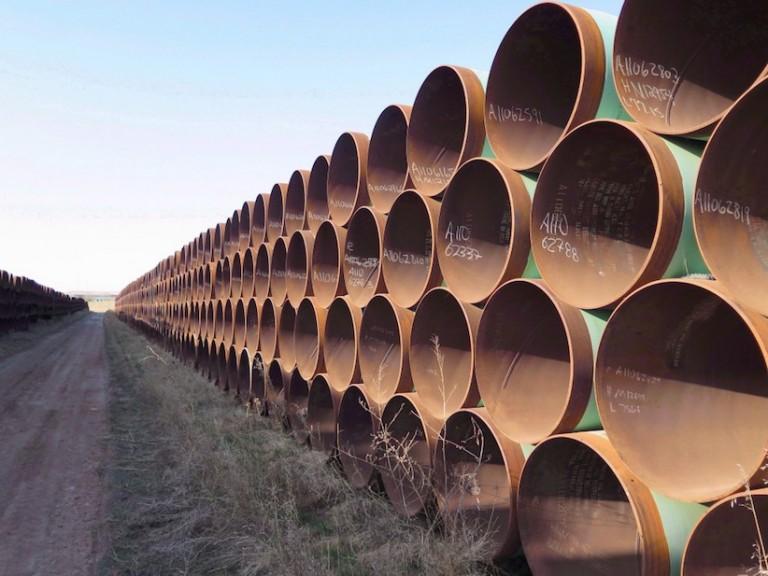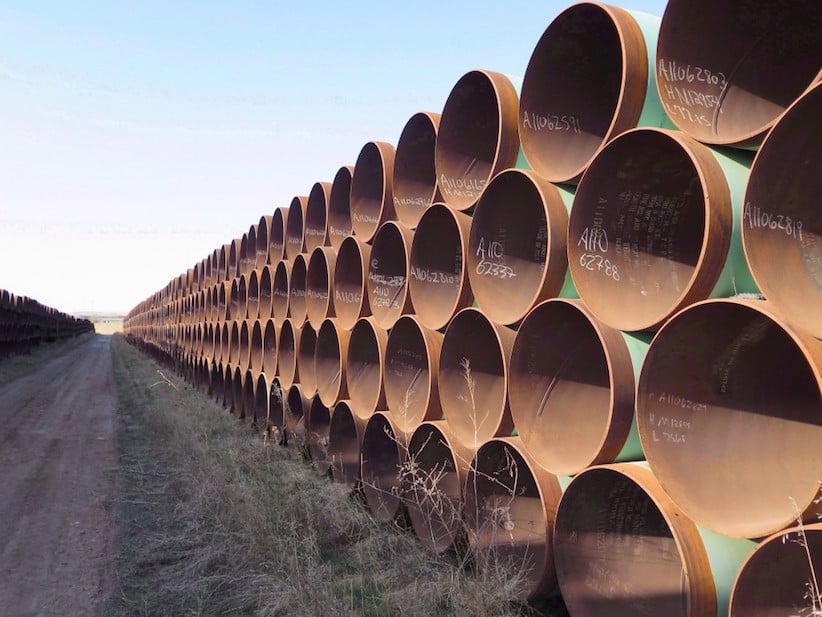No, carbon pricing alone won’t be enough to lower emissions
A response to economist Trevor Tombe’s argument against blocking pipelines

Share

The economist Marc Blaug defined economic models as “mental exercises without the slightest possibility of ever being practically relevant.” These models and their fanciful assumptions look convincing on the back of an envelope, but they provide little real-world policy guidance.
Enter University of Calgary economist Trevor Tombe’s timely and counterintuitive back-of-the-envelope argument against rejecting new oil pipelines as a way of reducing greenhouse gas (GHG) emissions. Tombe concedes that a moratorium on new pipelines would lower GHG emissions domestically (upstream) and globally (downstream). But he thinks there’s a more efficient approach. Namely, a carbon price of approximately $50 per tonne.
Tombe’s admittedly rough calculations estimate the implied costs for Alberta if new pipelines are blocked. Rejecting new pipelines, he argues, poses a massive economic opportunity cost for Alberta oil producers, “far above the likely damages from a tonne of GHG emissions.”
The likely damage of a tonne of carbon emitted into the atmosphere is called the “social cost of carbon,” for which Tombe relies on the federal government’s updated estimate of $40. Tombe argues that pricing carbon at about $50 per tonne—which the government’s plan does by 2022—will reduce emissions more cheaply than prohibiting pipelines.
Tombe’s argument is just the kind of economic thinking best left to classroom chalkboards. As a basis for Canada’s climate policy, it falls short in three ways.
First, Tombe assumes without justification that Alberta oil producers’ implied costs—purely notional costs not actually borne by anyone—are relevant to a public policy whose purpose is to reduce emissions and the very real costs we’ll all actually have to bear if we fail to stabilize our climate.
Second, the government’s estimated social cost of carbon might vastly underestimate the true cost. While most economists agree that pricing carbon is the ideal way to reduce emissions, economists also appear to agree that economic models seriously underestimate the future costs of climate change. Models of the social cost of carbon depend on modellers’ assumptions, including how much to discount future damages. Estimates vary, but many economists think the true cost is closer to $200 than Tombe’s $50.
Think of it this way: if Canada’s proposed price of $50 by 2022 were really high enough to reduce emissions and stimulate “clean growth” by sending a clear signal to the market to shift production from fossil fuels to renewable energy, we wouldn’t even be having this debate! In a world where carbon is properly priced and not substantially subsidized, building new pipelines would be economically unthinkable. Which is kind of the point.
But because $50 is almost assuredly too low, we can’t rely on it alone, no matter how economically ideal it may seem. Instead, we must pursue a mix of policies, including one Tombe agrees will work – blocking pipelines.
The Minister of the Environment and Climate Change gets this—mostly—when she explained that “some people say just have a price on carbon. If you were to do that, the price would be so high it wouldn’t make any sense. So that’s why you have to have a variety of different measures.” Minister McKenna’s absolutely right, of course, if what she means is that a full carbon price wouldn’t make sense politically.
Finally, Tombe assumes other oil producers like Saudi Arabia will fill the gap left by Alberta’s forgone production. As his calculations show, however, even if Saudi Arabia fully makes up for Alberta’s reduced production, global emissions will still decline. More importantly, Tombe’s assumption reveals a corrosive cynicism about the Paris Agreement, which both Canada and Saudi Arabia have ratified. As a developed country, Canada is legally obligated to reduce its absolute economy-wide emissions. Building new pipelines squarely contradicts this obligation, and it tells developing countries that Canada is prepared neither to lead nor to innovate. If each oil-producing signatory to the Paris Agreement looked at the world the way Tombe seems to, each would conclude that its foregone opportunity costs would be too high to phase-out oil production, leading to a tragedy of the global commons through a collectively-fulfilling prophesy.
But as the renowned climate scientist James Hansen and his colleagues recently concluded, “we have a global emergency. Fossil fuel C02 emissions should be reduced as rapidly as practical.”
Canada needs to heed this policy guidance. Otherwise, we’ll never have Paris, only pipelines that will soon outlive their purpose.
Jason MacLean is an assistant professor at the Bora Laskin Faculty of Law, Lakehead University